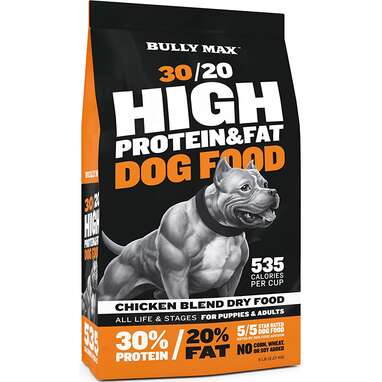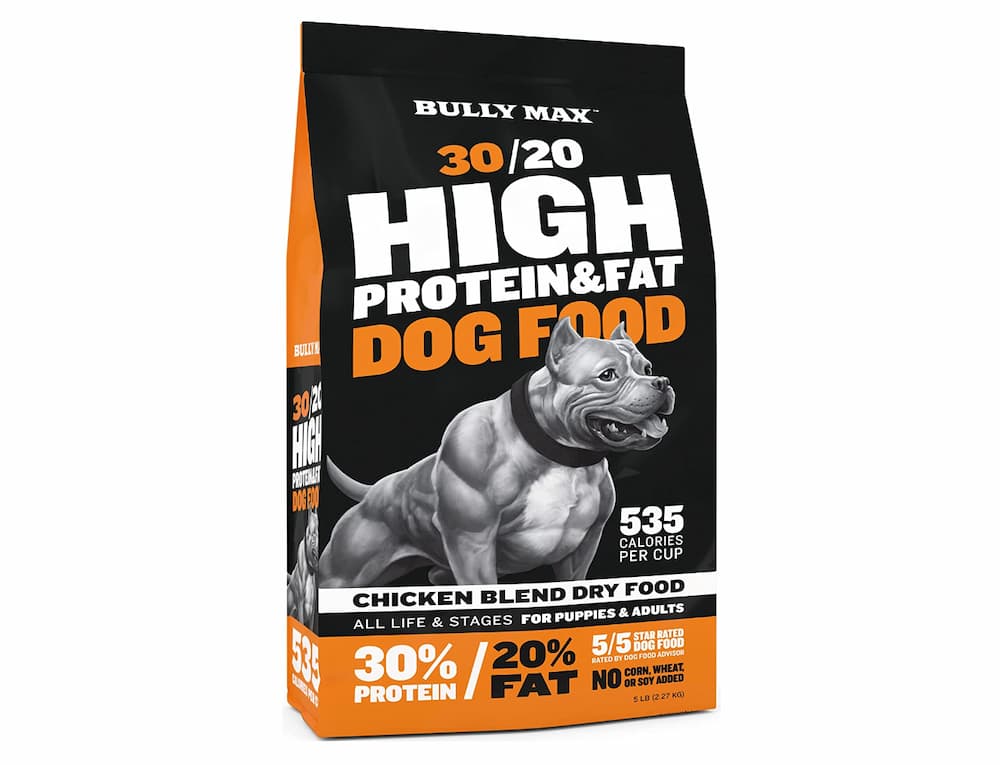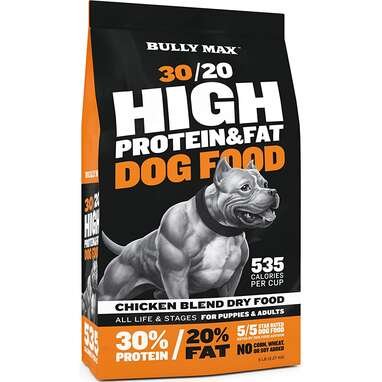As a professional dog owner and enthusiast, I understand the importance of feeding my pitbull puppy the best possible food. Did you know that a well-balanced and nutritious diet plays a critical role in their growth and development? It not only helps them build strong muscles but also supports their overall health and immune system. Choosing the right food for your pitbull puppy can make a significant difference in their well-being and happiness.
When it comes to finding the best dog food for a pitbull puppy, it is crucial to consider their breed-specific dietary needs. Pitbull puppies require a diet that is rich in protein to support their active lifestyles and promote proper muscle development. Additionally, a balanced combination of carbohydrates, healthy fats, vitamins, and minerals is essential for their overall growth and vitality. By providing them with quality food that meets these requirements, you can ensure that your pitbull puppy grows into a healthy and thriving adult dog. Remember to consult with your veterinarian to determine the specific nutritional needs of your pitbull puppy and make an informed decision regarding their diet.
Choosing the right dog food for your pitbull puppy is crucial for their health and growth. Look for dog foods that are specifically formulated for puppies and include high-quality ingredients like real meat, whole grains, and fruits. Additionally, consider the nutritional needs of your pitbull, including the appropriate protein and fat levels. It’s always a good idea to consult with your veterinarian to determine the best dog food option for your pitbull puppy.

The Best Dog Food for a Pitbull Puppy: Key Considerations and Recommendations
When it comes to providing the best nutrition for your pitbull puppy, choosing the right dog food is crucial. Pitbull puppies have unique dietary needs, as they are a large and active breed with specific nutritional requirements. In this article, we will explore the factors to consider when selecting dog food for your pitbull puppy and provide recommendations for the best options available. Whether you have a new pitbull puppy or are considering getting one, this guide will help you make an informed decision to support your furry friend’s health and well-being.
Understanding the Nutritional Needs of Pitbull Puppies
Prior to exploring specific dog food options for your pitbull puppy, it is important to understand their unique nutritional needs. Pitbull puppies require a balanced diet that provides them with the energy and nutrients necessary for healthy growth and development. They need a higher amount of protein to support their muscle development, as well as essential fatty acids for brain development and a healthy coat. Additionally, pitbull puppies have a faster metabolism than adult dogs, so they require more calories to fuel their active lifestyle.
Protein: Building Blocks for Power Pups
Pitbull puppies are known for their muscular build, and protein plays a vital role in supporting their muscle development. When selecting dog food for your pitbull puppy, look for options that list a high-quality source of animal protein as the first ingredient. This can include chicken, beef, fish, or other meat sources. Aim for a minimum of 25% protein content in the dog food to ensure your pitbull puppy receives the necessary nutrients to support their growth and energy levels.
In addition to the overall protein content, it is essential to consider the amino acid profile of the dog food. Amino acids are the building blocks of protein and play a crucial role in various bodily functions. Look for dog foods that contain a balance of essential amino acids, such as taurine and arginine, as these are particularly important for maintaining heart health in pitbull puppies.
It is also worth mentioning that while plant-based proteins can be included in a pitbull puppy’s diet, animal-based proteins are generally more easily digestible and provide a higher biological value. Therefore, prioritize dog foods with animal protein sources and use plant-based proteins as supplementary ingredients.
Fats: Essential for Brain Development and Coat Health
Fats are another crucial component of a pitbull puppy’s diet. They are a concentrated source of energy and play a role in brain development, immune function, and maintaining a healthy coat. Look for dog foods that contain high-quality sources of fats, such as chicken fat, fish oil, or flaxseed oil. These fats should provide a balance of Omega-3 and Omega-6 fatty acids, which have anti-inflammatory properties and promote healthy skin and a shiny coat.
It is worth noting that pitbull puppies have specific fat requirements, and excessive fat intake can lead to obesity and other health issues. Aim for a dog food that contains approximately 12-15% fat content to ensure a well-balanced diet for your puppy.
When choosing a dog food, avoid options that rely heavily on plant-based fats like corn oil or soybean oil, as these may not provide the optimal balance of fatty acids for your pitbull puppy’s needs. Look for explicit mentions of animal fats or named sources of Omega-3 and Omega-6 fatty acids.
Carbohydrates: Fueling Your Pitbull Puppy’s Energy
While pitbull puppies require a substantial amount of protein and fat in their diet, carbohydrates also play a role in providing energy. Opt for dog foods that include easily digestible carbohydrates from sources like sweet potatoes, brown rice, or whole grains. These carbohydrates should be included in moderate amounts, typically ranging from 30-40% of the overall dog food composition.
Avoid dog foods with excessive carbohydrate content or those that rely heavily on fillers like corn, wheat, or soy, as these ingredients are less nutritious and may cause digestive issues. Prioritize dog foods that list whole food sources of carbohydrates higher up in the ingredient list.
It is important to note that some pitbull puppies may have sensitivities or allergies to certain grains or carbohydrates. If your puppy shows signs of digestive discomfort or allergies, consult with a veterinarian to determine the best course of action and explore alternative dog food options.
Key Takeaways: Which is the Best Dog Food for a Pitbull Puppy?
- Look for a dog food specifically formulated for puppies.
- Choose a brand that uses high-quality ingredients and avoids fillers or additives.
- Consider the nutritional needs of pitbull puppies, such as a balanced ratio of protein, fat, and carbohydrates.
- Consult with your veterinarian for personalized recommendations.
- Gradually introduce new food to avoid digestive issues.
Frequently Asked Questions
Welcome to our Frequently Asked Questions section where we provide helpful information about choosing the best dog food for your pitbull puppy. Whether you’re a new pitbull owner or looking to switch your puppy’s diet, we’ve got you covered with expert advice and recommendations.
1. What should I look for when choosing dog food for my pitbull puppy?
When choosing dog food for your pitbull puppy, it’s important to look for a balance of high-quality ingredients that provide essential nutrients. Opt for a formula specifically formulated for puppies, as they have different nutritional needs compared to adult dogs. Look for a dog food brand that lists real meat as the first ingredient, such as chicken or beef. Avoid dog foods that contain fillers, artificial flavors, and preservatives.
Additionally, consider your pitbull puppy’s specific needs, such as any allergies or sensitivities they may have. Consult your veterinarian to determine if your puppy has any special dietary requirements or restrictions. Remember to introduce new foods gradually to avoid digestive upset and monitor your puppy’s health and energy levels once you make the switch.
2. Should I feed my pitbull puppy wet or dry food?
Both wet and dry dog food options have their advantages, but many pitbull puppy owners prefer dry food for a few reasons. Dry dog food tends to be more convenient, has a longer shelf life, and promotes dental health by helping to reduce tartar buildup. However, it’s crucial to ensure your pitbull puppy stays hydrated, so always provide access to fresh water.
That said, every dog is different, and some pitbull puppies may have a preference for wet food or require it due to dental issues or difficulty chewing. It’s essential to consult with your veterinarian to determine the best option for your pitbull puppy’s specific needs.
3. How often should I feed my pitbull puppy?
Pitbull puppies have specific dietary requirements and need to be fed multiple times a day. Generally, it’s recommended to feed your pitbull puppy three to four meals per day until they reach around four months old. After four months, you can typically reduce it to two meals a day. Always follow the guidance provided on the dog food packaging or consult your veterinarian for personalized advice based on your puppy’s age, size, and activity level.
Remember not to overfeed your pitbull puppy to prevent obesity and related health issues. Measuring each meal and monitoring your puppy’s body condition score can help ensure they’re getting the appropriate amount of food.
4. What are some specific nutrients important for pitbull puppy growth?
For optimal growth and development, pitbull puppies require specific nutrients. Protein is essential for muscle development, and a minimum of 22% protein content in their food is recommended. Additionally, fats provide energy and help with nutrient absorption, so look for foods with healthy fat sources like fish oil or chicken fat.
It’s also important to ensure your pitbull puppy receives appropriate vitamins and minerals, including calcium and phosphorus, for strong bones and teeth. Other essential nutrients include omega-3 and omega-6 fatty acids for healthy skin and coat, and DHA for brain development. Choosing a high-quality puppy food that includes these nutrients in appropriate amounts is crucial for your pitbull puppy’s overall wellbeing.
5. Can I give my pitbull puppy human food as a treat?
While it’s tempting to share our food with our adorable pets, it’s important to be cautious when giving your pitbull puppy human food as a treat. Some human foods can be harmful or toxic to dogs, so it’s crucial to know what is safe to offer. Foods such as plain cooked chicken or turkey, carrots, and plain, unsalted peanut butter can be given in moderation as a healthy treat.
However, it’s important to avoid foods like chocolate, grapes, onions, and anything containing caffeine, as these can be toxic to dogs. Additionally, certain seasonings, spices, and high-sodium snacks should be avoided. Always research and consult with your veterinarian to ensure any human food you offer is safe and appropriate for your pitbull puppy.

✅5 Best Dog Food For Pitbull of 2023
To sum up, it’s important to follow these guidelines for a professional tone that is easy for a 13-year-old to understand. Remember to use first person point of view and keep sentences concise. By following these recommendations, the reader will have a clear understanding of the article’s key points.
